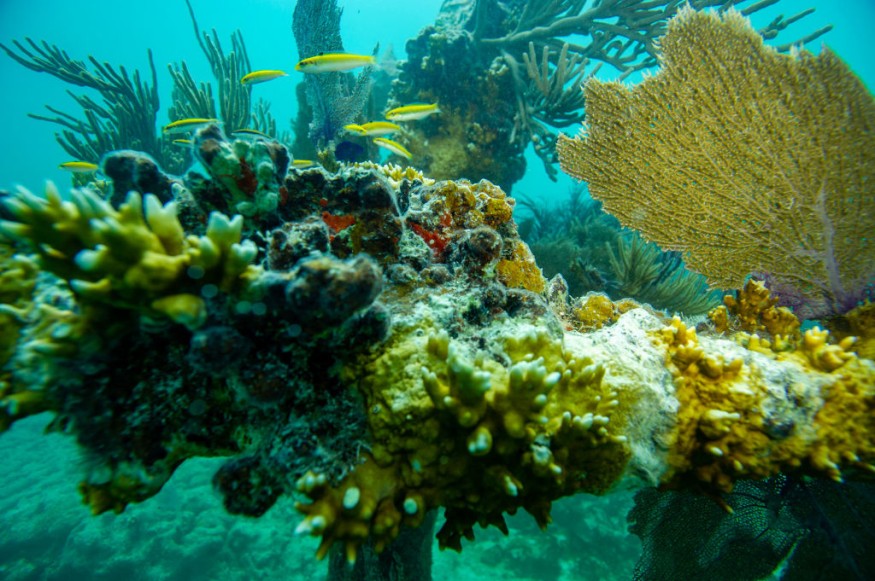A volunteer seaweed removal program involving citizen scientists has resulted in a 600% increase in coral recovery off the coast of Magnetic Island in Australia.

The joint Earthwatch Institute program, which has been running since 2018, was led by James Cook University Senior Research Officer Hillary Smith and Professor David Bourne (JCU and Australian Institute of Marine Science).
Volunteer citizen scientists helped remove macroalgae (aka "sea-weeding") from experimental plots at two reef sites.
Weeding technique
The findings from the first three years of the research, published in the Journal of Applied Ecology, demonstrated that considerable regrowth was documented in parts of reef that were weeded, which is a positive sign for coral regeneration.
The coral had recovered spectacularly in the places that were weeded (300 m2, or roughly 1% of the seafloor at the study site) twice or three times a year.
Corals now cover 1.5 to six times the area they did previously.
The researchers also noted that the seaweed has grown back less and less since the coral recovered.
Originally covering 80% of the seafloor, seaweed now covers less than 40%. This shows that it may only take a few years of work to suppress the seaweed and let the coral ecosystem recover.
Importantly, the diversity of coral species rose as well, indicating that weeding does not favor any specific coral species.
"We have yet to see a plateau in coral growth within these plots at Magnetic Island, which is characterized as one of the degraded reefs on the Great Barrier Reef," Smith said.
Volunteers utilized a hand-pulling approach to remove the seaweed from the seafloor.
While corals and seaweed are both natural aspects of a reef, Smith claims that when there is widespread coral loss due to extreme weather events such as bleaching or cyclones, seaweed regrows considerably faster and outcompetes coral.
As climate change and local stressors damage global reef ecosystems, many reefs across the world are seeing corals replaced by macroalgae, putting an increased emphasis on creating active management measures.
Read Also : Research Investigate the Influence of Chemical Compounds Released by Corals Into Saltwater
Reef restoration
The researchers believed that the benefit of this study is that there is a lot of funding going into high-tech interventions for reef restoration, but access to those approaches in underdeveloped nations, where many coral reefs are located, is now limited.
Smith said her team is now looking at other places where the weeding technique could be effective, such as the Whitsunday Islands, which have a different variety of prevalent seaweed.
Possible locations include the reefs in Singapore and Indonesia, which have higher urban pollution, as well as French Polynesia and the Wallis and Futuna Islands, which have fishery pressures.
"A project like this enables people to take ownership of their local environment and also makes them aware that there are small things they can do to help our planet," Smith said.
The Earthwatch Organization is seeking volunteers to help them with their sea-weeding research that is expected to last until 2025.
Related Video:
© 2026 NatureWorldNews.com All rights reserved. Do not reproduce without permission.





